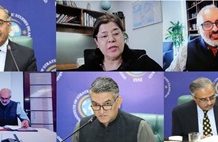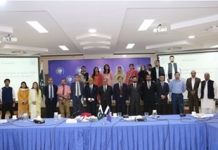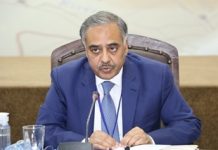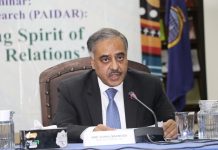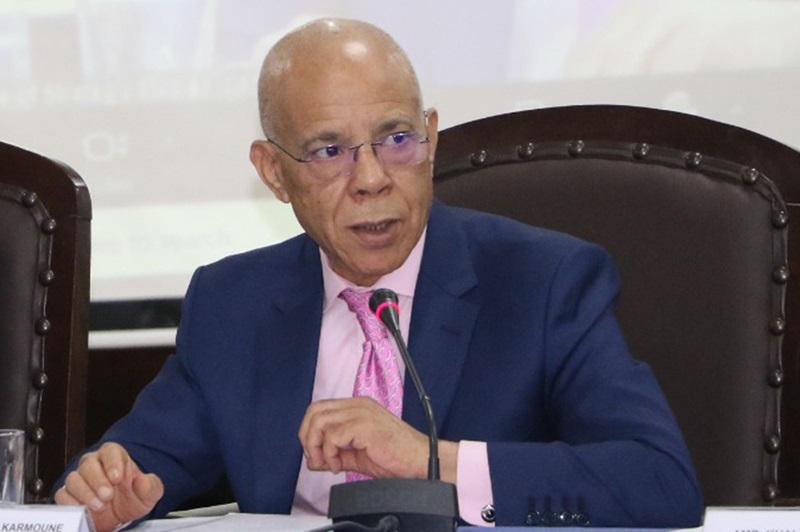
Honorable Senator Mushahid Hussain Sayed,
Excellency Ambassador Sohail Mahmood, Director General ISSI,
Excellency Ambassador Khalid Mahmood, CBOD, ISSI,
Excellency Ambassador Sheryar Akbar Khan, Additional Secretary Africa,
Excellencies Ambassadors, High Commissioners of African Group,
Sholars, Medias representatives, Ladies and gentlemen,
It gives me a pleasure to be among you today to explore together the perspectives of Pakistan Africa Relations in the light of the objectives, which were set by the Bandung Conference 69 years ago. In 1955, Asian and African nations (29 in total) met in Indonesia, from 18 to 24 April, to discuss peace, development, economic cooperation and the role they have to play in the context of Cold War, in conformity with the principles of the UN Charter and International Law.
The Bandung Conference is called now the Non- Aligned Movement. It is at its 19th summit. The last one was held in Uganda in January 2024 and it brought together 120 member states.
The change in name has led, of course, to the updating in the objectives, which hovers now around common human problems, shared prosperity, the advance of science and technology, the protection of the environment, food security, reduction of the global warming and response to the effects of climate change, combatting international terrorism and transnational organized crime.
In the case of Pakistan and Africa, their relations are based on the principles of mutual respect, cooperation, and solidarity. In the time of the African struggle for independence, Pakistan was among the nations, which actively supported the liberation struggle of the African countries.
In the post-independence of African countries, Pakistan was there by contributing to the continent’s peace and security through the participation in the UN peacekeeping cooperation in the Continent. The country has provided more than 200,000 troops to 46 United Nations Peacekeeping Operations, predominantly in Africa.
On the economic level, Africa stands out as a land of immense opportunities. Despite maintaining cordial relations, trade figures between Pakistan and African nations have remained modest, at around $7 billion. The will to develop it to a high level has been expressed, on the part of Pakistan, by the initiative of “Look Africa” policy launched in 2017.
The Initiative aims at opening opportunities for Pakistani enterprises to do business with Africa. This initiative was later incorporated in the overall “Engage Africa” Policy, which has resulted up until now in the organization of four Trade Development Conferences and Single Country Exhibitions in different parts of the Continent (Nairobi 2020, Lagos 2021, Johannesburg 2022 and Cairo 2024). The objective is to increase the volume of economic exchange with African countries to its maximum potential.
In addition to this initiative, the country is negotiating Preferential Trade Agreements with three of the five African economic blocs (SACU, ECOWAS and EAC).
In this respect, the African Continental Free Trade Agreement presents an opportunity for Pakistan to reinforce its trade and investment connections with African nations, opening up new possibilities for businesses and strengthening overall economic ties with the continent.
To overcome their common obstacles for developing their economies and forging a strong and effective partnership for peace progress and shared prosperity, Pakistan and Africa need to work together to launch joint ventures in different economic sectors such as Fertilizers (building fertilizer plants in different African regions), Agriculture, ICT, Health, Mines, Inrastructure, Tourisme, Banking, Insurance sector, Car Industry, Renewable energy, vocational and university training
In line with the Bandung principles, Pakistan and Africa need to maintain unity, solidarity and coordination to make their voice heard in all international and regional platforms.
On the diplomatic level, Pakistan has up until now opened at least 20 embassies across the continent to consolidate its cooperation with the 54 sovereign states and takes it to higher levels.
The two regions need to build on the Bandung principles to continue to defend
the sovereignty and territorial integrity of all nations, to advocate the settlement of all international disputes by peaceful means, such as negotiation, conciliation, arbitration for the promotion of peace and stability.
In view of the current challenges in the international arena, the objectives and principles of the Bandung spirit remain as relevant today as the time of the founding of the organization. Pakistan and Africa need more coordination to confront emerging threats and challenges which impede efforts to attain greater economic development and social progress.
the emergence and spread of pandemics and health emergencies, including COVID-19, have taught us that there is no country or region which is immune from these threats and that collective efforts are needed to contain them.
The dreamed of shared prosperity needs of us to take huge steps in order to enhance economic and social development. Such development can be achieved mainly through science and technology, industrial cooperation and the promotion of trade and investments.
On the international level, Pakistan and Africa need to work together to further promote, preserve and reform multilateralism, and push for full respect of the principles of international law and the maintenance of international peace and security.




